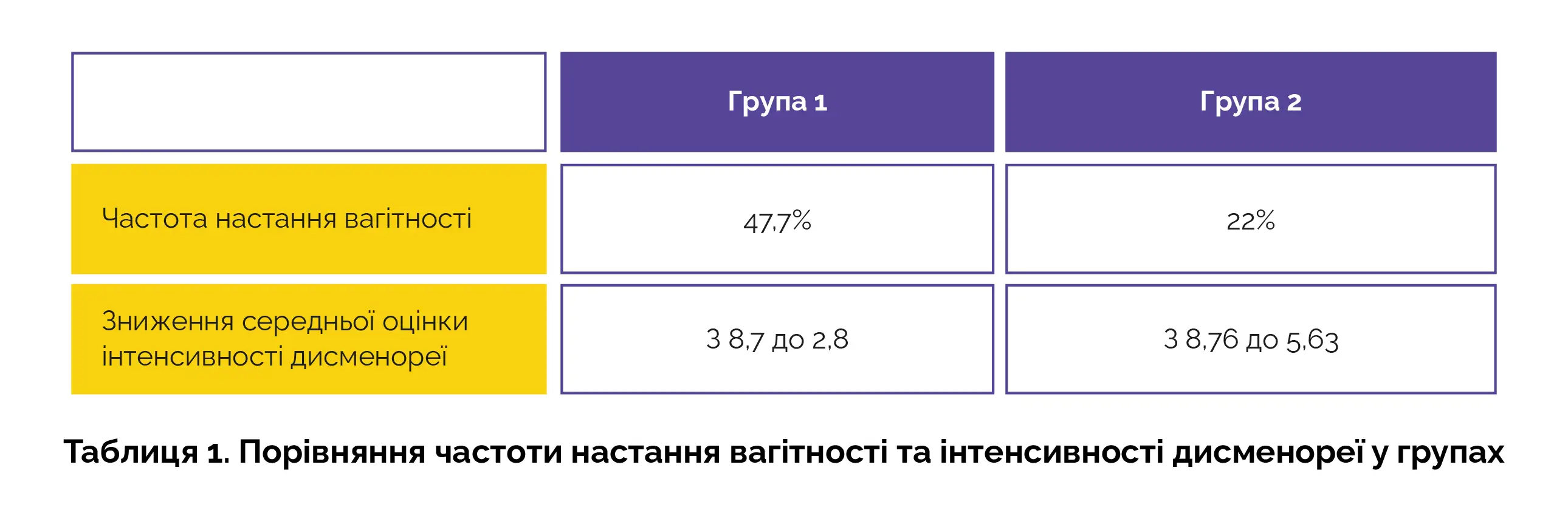Змінити пароль!
Скинути пароль!


Хоча лапароскопічна хірургічна операція забезпечує ефективне лікування глибокого ендометріозу, оптимальний варіант післяопераційного ведення залишається предметом суперечок.
У безплідних жінок із глибоким ендометріозом застосування дієногесту як додаткової терапії перевищувало хірургічне втручання з погляду поліпшення показників вагітності та вираженості дисменореї.
Хоча лапароскопічна хірургічна операція забезпечує ефективне лікування глибокого ендометріозу, оптимальний варіант післяопераційного ведення залишається предметом суперечок. У цьому відкритому рандомізованому контрольованому дослідженні вивчали питання, чи може застосування дієногесту після операції підвищити фертильність і полегшити неприємні відчуття під час менструації у безплідних жінок.
Усього до дослідження було включено 88 жінок (вік 21–38 років), яким було показано хірургічне втручання з приводу глибокого ендометріозу. Три пацієнтки не пройшли подальшого обстеження. Після операції учасниць рандомізували у дві групи: 44 жінки отримували дієногест протягом трьох місяців (група 1), а 41 жінка не отримувала жодного лікування (група 2). Первинною кінцевою точкою була частота вагітності через дев'ять місяців після операції. Вторинною кінцевою точкою була інтенсивність менструального болю, який оцінювали до операції та через дев'ять місяців після неї.
Частота настання вагітності у групі 1 була значно вищою, ніж у групі 2. Крім того, жінки у групі 1 відзначали більш значне зниження інтенсивності дисменореї порівняно з групою 2 (див. таблицю 1).

Короткострокове післяопераційне застосування дієногесту (селективного прогестину) було пов'язане з покращенням частоти настання спонтанної вагітності та вираженості дисменореї у безплідних пацієнток із глибоким ендометріозом.
Ginekologia Polska
Efficacy of postsurgical medical therapy for infertile patients with deep endometriosis
David Skhirtladze та співавт.
Коментарі (0)